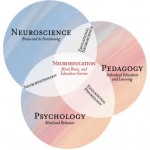Science Daily’s article, “Prescriptions for Teens and Young Adults on the Rise” documents some alarming statistics: “The study found that between 1994 and 2007, prescription rates for controlled medications nearly doubled from 8.3 to 16.1 percent among young adults and …
Nature vs. Nutrition: Phenylketonuria (PKU)
What role does nature (versus nurture) play in the development and treatment of depression and obesity? While researchers have made great strides in identifying a number of biological underpinnings affecting both conditions, it is important to maintain a balanced view. …
Principles of Stress
The following quotes, from Abnormal Psychology (Butcher, Hooley and Mineka), outline the basic mechanisms of the human stress-response: “When we experience or perceive challenges to our physical or emotional well-being that exceed our coping resources and abilities, the psychological condition …
Problems with Diagnostic Labeling
A valid point in the debate concerning over-diagnosis of psychological ailments (of interest to our blog because “labeled” individuals are increasingly prescribed medication as a first-choice treatment): “The diagnostic label describes neither a person nor any underlying pathological condition (“dysfunction”) …
Risks of Designer Drugs
NOTE: Abnormal psychology revolves around two major schools of thought to explain mental disorders: the “psychodynamic paradigm” and the “biological paradigm.” The psychodynamic paradigm focuses more on humanistic, cognitive and behavioral causes and effects, while the biological paradigm focuses on physical …
Ethical Issues in Educational Neuroscience
For a look at some of the ethical issues surrounding neuropharmacology, check out: “Ethical issues in Educational Neuroscience: Raising Children in a Brave New World” (Stein, Z., della Chiesa, B. Hinton, C., Fischer, K.W.). The thesis, as described by its …







